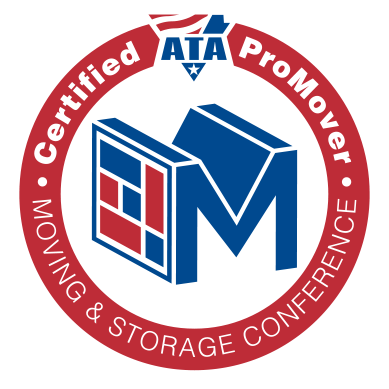
When evaluating and creating your relocation policy, it’s vital to understand the needs of the people you are moving. One group whose needs often fly under the radar are members of The Sandwich Generation.
First, who is the Sandwich Generation?
The sandwich generation is made up of adults who are both raising children and caring for aging parents – sandwiching them in-between. Employees that are sandwiched between caregiving responsibilities support multigenerational needs and have more responsibility when it comes to making life-changing decisions like relocating for work.
This generation includes a lot more people than employers may expect. According to Pew Research Center, almost half of Americans currently fall into this category and more are expected to join as a result of the pandemic. New York Life examined the effects the pandemic has on this generation and reported, due to the pandemic the Sandwich Generation is becoming increasingly younger, more female and more diverse.
Many, particularly Millennial mothers, joined the Sandwich Generation after their elderly parents contracted COVID-19, and subsequently dealt with the long-term health implications, or were impacted financially by the pandemic. The pandemic has also increased the financial burden of being a caretaker, with 27% of caretakers stating that they are paying for their dependents out of emergency savings and another 27% are working additional hours to cover the costs.
With an already tight talent market and more of the workforce sliding into the sandwich, it's important for companies to understand the additional responsibilities this generation is carrying outside of the office. Developing benefits packages that speak to this generation can help you secure and retain talent. Here are some key considerations to keep in mind when evaluating your organization’s corporate relocation program.
Relocation Needs to Be Simple
To help employees that are part of the Sandwich Generation, it’s important the relocation process is as simple and seamless as possible. Implementing relocation policies that prioritize flexibility, communication, and are well-planned are ways to accommodate the different needs of not only the relocating employee but their family as well. It’s particularly important for this group that you communicate clearly and frequently. Ensure your relocating employee understands the support they will be receiving before, during and after the relocation. Clear communication and a flexible relocation policy are key to encouraging this generation to consider relocation.
Provide Support for Multigenerational Needs
Members within the Sandwich Generation can find relocating for work overwhelming as they face complicated logistics and additional stress to moving a multigenerational family. From coordinating school pickups to scheduling doctor visits for both their children and parents and maintaining household responsibilities, this generation may not be eager to accept a position that complicates their responsibilities even more.
Companies can alleviate some of the burdens of relocating and help employees feel confident in accepting an offer or new position by creating a strategy that supports the multigenerational needs of the employee’s family. One option is to implement a staggered moving plan which can help your employee get settled into their new role while their family prepares to move.
You may also need to consider a higher budget for these moves as there could be up to three generations moving. Taking a flexible approach to relocation policies allows you to adjust your budget depending on the move.
Benefits Outside of Relocation
Members of the Sandwich Generation can easily turn down positions that require relocation due to their responsibilities as caretakers and the number of people their decisions impact. With the current job market, employers cannot afford to lose these candidates, particularly as the COVID-19 pandemic has pushed more people into this dual-support role. Working to give members of this demographic a positive relocation experience can help you attract and retain top talent.
Providing support outside of moving the family can be key to ensuring a successful relocation. Additional support can include helping find a home in their new market or offering caregiving support can help your employee and their family settle into this new chapter smoothly.
Additionally, consider their needs when making decisions about benefits. Offering family leave, a competitive salary, and flexible schedules can give your company the competitive advantage it needs to secure and retain top talent.
The Careful Movers®
Partnering with Allied can help you provide them, and all employees and candidates, with an easy and stress-free relocation experience. With 24/7 tracking, access to a nationwide team of agents, and customizable white glove and concierge services, let Allied provide you with quality service. Learn more.


![shield [Converted] susan](https://corporate.allied.com/hubfs/susan.png)
![shield [Converted] move](https://corporate.allied.com/hubfs/move.png)

